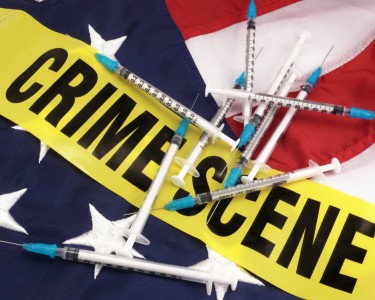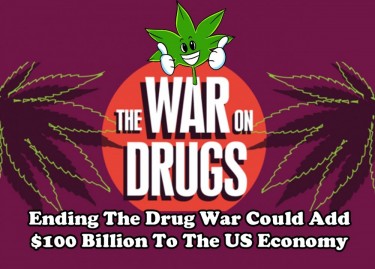
The People have Smoken – The Drug War is a Lost Cause!
When Richard Nixon officially launched the “War on Drugs” in 1971, the policy enjoyed broad public support. Fears of crime, addiction and social disorder in the tumultuous 60s and 70s made Nixon’s “tough on crime” stance resonate.
In the 1980s and 90s, the drug war’s aggressive policing, harsh mandatory minimum sentences, and “Just Say No” abstinence messaging hit fever pitch. DARE programs proliferated in schools, demonizing drugs as public enemy number one.
Few mainstream voices challenged the harsh prohibitionist consensus in those decades. But quietly, evidence mounted showing the immense collateral damage of militarized enforcement, mass incarceration, and unregulated underground drug markets.
By the early 2000s, cracks formed in the drug war’s armor. States began legalizing medical marijuana in defiance of federal prohibition. Psychedelic research resumed after decades of censorship. Harm reduction gained recognition internationally.
A tipping point came when the Obama administration took a hands-off approach to state cannabis reform. By the 2010s, the cultural zeitgeist finally abandoned the hysterical anti-drug frenzy of the 80s and 90s.
Today, this momentum accelerates rapidly. A recent Gallup poll reveals a dramatic 22-point increase since 2019 in Americans saying the country has “lost ground” against illegal drugs. Even Republicans are losing faith in the tired strategies.
When the bedrock law-and-order party acknowledges prohibition’s failure, the paradigm shift is real. The people have spoken through 50 years of hard-learned experience. Criminalization does not temper human nature – it only amplifies risks and suffering.
Parsing the Public’s Growing Disillusionment
Gallup’s latest polling reveals a dramatic downturn in public confidence that the War on Drugs is achieving its stated aims.
Compared to just four years ago, belief that America is “losing ground” against illegal drugs has jumped 22 percentage points to a majority 52%. Meanwhile, the share feeling progress is being made plunged from 41% to 24% – a minority for the first time.
This signals a macro shift from the decades when Nixon’s crackdown enjoyed widespread support. In the emotional aftermath of 60s upheaval, the drug war’s simplistic moralizing won hearts. Troubling means were justified by promised ends.
But the passing decades yielded little beyond bloated prisons, decimated communities, and ever more dangerous, plentiful drugs. As evidence mounted of prohibition’s failure, attitudes began changing.
Cannabis legalization’s advance exposed cracks in absolutist anti-drug rhetoric. Psychedelic research revealed therapeutic potential beneath the hysteria. Harm reduction became the humane alternative to hopeless abstinence-only policies.
Gradually the monolithic drug war consensus eroded. Today it collapses entirely under the weight of its endless unfulfilled promises and glaring hypocrisies. Americans see through the charade.
The opioid crisis likely catalyzed this tipping point by showcasing prohibition’s deadly ironies. As the War on Drugs escalated, pharmaceutical corporations hooked millions on painkillers. When the prescriptions ended, many turned to the thriving black market to meet their addictions.
The resulting mass fentanyl poisoning tears at the heart of drug war logic. More enforcement evidently worsens outcomes. Criminalization offers no solutions to addiction and despair.
This painful awakening explains the public’s growing discontent captured by Gallup. When even law-and-order conservatives acknowledge losing ground, the paradigm has irreversibly shifted.
Because ultimately, prohibition’s costs outweigh any perceived benefits. Trillions spent militarizing police, incarcerating generations, and empowering cartels could have better served education, healthcare, and economic opportunity in marginalized communities.
Prohibition tries controlling humanity’s uncontrollable shadow, always missing the darkness within itself. But the light dawning in hearts intuitively recognizes policies should help people, not demonize and punish them.
That 75% of Americans view the national drug problem as serious compared to just 35% locally shows perceptions are shaped more by media narratives than reality. The propaganda rings hollower every year.
Why This Poll Means Little for Actual Reform
While on the surface Gallup’s findings seem an exciting milestone, placing too much stock in public opinion overlooks how policy actually gets shaped in America. The people’s will has little sway over entrenched special interests driving prohibition for profit.
For decades, polls have consistently shown majorities supporting cannabis legalization, even among Republicans today. Yet federal law remains untouched, with minor piecemeal changes only at the impassioned behest of industries wishing to profit from the emerging market.
The interests of voters barely register compared to the coordinated lobbying of those who fund campaigns and control the revolving door between regulators and the regulated. The game is rigged to selectively serve concentrated wealth over dispersed general welfare.
So even 75% viewing drugs as a serious national issue means little when pharma giants reaping billions from the status quo direct strategy behind the scenes. The public may grow wise, but power never concedes anything without pressure.
In truth, we are less citizens with representation than consumers with spending potential to be mined by corporations. Our “vote” exists only in dollars spent, not integrity or wellbeing nurtured. We are the flock, government agencies our obedient sheepdogs answering to the owners.
While this seems cynical, civics education paints a fantasy. Congress defies majority public support on issue after issue with no recourse. The model is orderly plutocracy, not responsive democracy – no matter the propaganda fed in classrooms.
So until seismic financial interests get disrupted enough to flip sides and back reform, or public outrage threatens major disruption, expect little change in policy regardless of polling. Talk is cheap, and politicians expend only necessary action for self-preservation, not service.
Even the GOP’s movement on the issue stems more from reading the writing on the wall around cannabis than genuinely responding to social justice- even though you have my opinions on “social justice”. Most still oppose legalization of other drugs absent profit potential. Only a true public health framework stands a chance.
In sum, this poll makes for inspiring headlines but lackluster policy indicators. Power squelches public will until the status quo grows so unstable that change offers more advantage than hindrance. We’ve a ways to go before that tipping point against prohibition despite the optics.
This is the cynical nature of maintaining mass exploitation that serves entrenched hierarchies. Positive polling simply gets spun for PR cover as the machine churns on. Real change takes protest and economic threat – not faith in corrupt institutions.
How to do your part!
While lobbying and legislation may ignore public opinion, individuals still possess power through how they spend money and choose to comply with unjust laws. Small acts of protest summed can disrupt even the most entrenched system.
The simplest impact comes by boycotting companies upholding prohibition. Seek out anti-reform PAC recipients and major donors to prohibitionist lobbying groups, then avoid patronizing those corporations.
Even if one customer means nothing, multiplying non-compliance saps revenue streams supporting the drug war machine. And companies fear anything dampening shareholder profits and souring their image. Unite with like-minded friends to expand the boycott’s reach.
Divesting from banks tied to predatory private prisons could also pressure the incarceration business model. Transfer your assets to regional credit unions and small local banks not profiting off human suffering.
Additionally, don’t support media outlets and journalists actively demonizing reform efforts and spreading reefer madness propaganda. Cancel subscriptions and block their advertisers. Fight misinformation by choking off its funding.
While no single boycott drops Amazon, each empowers citizens to withhold complicity and pool economic leverage for justice. Help broader society wake up by discussing your reasons for abstaining. Consumer education and peer pressure add up.
Another avenue is progressive civil disobedience against draconian prohibition laws. As precedents like Gandhi and King show, unjust rules lose legitimacy when facing nonviolent mass resistance.
Start by asserting cognitive liberty with entheogens that don’t harm others but open minds. Or support harm reduction tactics like testing illicit drugs for safety. Putting community wellbeing over bad policy erodes the veneer of authority.
While risks exist, compare them to the immense harm enabled by silent complicity to oppression. Help negate unjust laws by refusing to abide them, especially around victimless choices. What moral duty overrides that?
Of course, use wisdom weighing potential consequences like arrest. But mass non-compliance eventually forces oppressive systems to make concessions when puffed-up authority gets exposed as largely imaginary. Staying on the right side of history matters most.
The sticky truth remains – prohibition cannot end without public demand overwhelming its financial beneficiaries. But such pressure starts with millions of tiny acts of courageous disobedience. The revolution lives first in our hearts before exploding into policy.
So vote for reform with dollars, actions, and voice. Support grassroots alternatives building a compassionate society from the roots. The war has already lost moral legitimacy – now it loses revenue and compliance. All we need persist and grow.
THE WAR ON DRUGS IS OVER, THAT IS GOOD, READ ON…
ENDING THE WAR ON DRUGS COULD ADD $100 BILLION TO US ECONOMY
- SEO Powered Content & PR Distribution. Get Amplified Today.
- PlatoData.Network Vertical Generative Ai. Empower Yourself. Access Here.
- PlatoAiStream. Web3 Intelligence. Knowledge Amplified. Access Here.
- PlatoESG. Carbon, CleanTech, Energy, Environment, Solar, Waste Management. Access Here.
- PlatoHealth. Biotech and Clinical Trials Intelligence. Access Here.
- Source: http://cannabis.net/blog/opinion/the-people-have-smoken-new-gallup-poll-shows-most-americans-feel-the-war-on-drugs-is-a-failure




